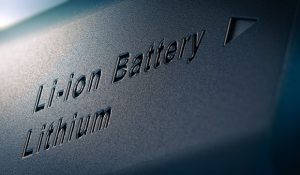Indian lithium-ion battery plant to produce synthetic graphite
A development at an Indian lithium-ion battery plant could begin to challenge China’s dominance of the graphite anode market.
A lithium-ion battery manufacturing plant in one of India’s southern provinces that came online recently will become the world’s first and only 100% backward-integrated facilities producing synthetic graphite (Syn-G) when fully operational.
Sign up today for Gunpowder, MetalMiner’s free, biweekly e-newsletter featuring news, analysis and more.
Lithium-ion battery components
Such high-grade graphite anode material is a key component in the lithium-ion battery, something China has monopolized the production of for a long time.
Epsilon Advanced Materials, the company behind the new plant, is a subsidiary of Epsilon Carbon. Epsilon Carbon is India’s leading coal carbon company that recently diversified into the battery material business. Specifically, it has moved to develop and manufacture high-performance carbon products for anode components for lithium-ion batteries. Industries in China currently produce over 80% of the world’s supply of these anodes.
Epsilon Carbon took over two years to develop a new, environmentally friendly process to produce the graphite anode material.
Managing Director Vikram Handa is the son-in-law of none other than steel tycoon and entrepreneur Sajjan Jindal, chairman and managing director of JSW Group of companies diversified in steel, mining, energy, sports, infrastructure and software business.
Handa set up Epsilon Advanced Materials Pvt — India’s first manufacturer of lithium-ion battery parts — in the southern state of Karnataka last August. He is sourcing the raw material from the largest steel mill in the country, owned by Jindal.
Investment plans
According to Bloomberg, Handa plans to invest approximately $807 million (Rs 60 billion rupees) to produce 100,000 tons of synthetic graphite anode by 2030. That would account for about 10% of estimated global demand.
By producing the anodes, Handa aims to take India from a battery minerals center to a battery materials hub. Much of China’s raw material for producing the anode comes from India.
Epsilon is betting on India’s huge automobile market — on the cusp of conversion to electric vehicles — for demand.
Many Indian automakers, like Mahindra & Mahindra, and Tata Motors, have already started producing or have announced plans to make electric vehicles (EVs).
Tesla, meanwhile, picked Karnataka, the same state where Epsilon has its factory, for its first plant in the country. Handa is hopeful Tesla will become a customer, too.
EVs pivot
India is well on the path of green fuel with a pivot toward EVs.
It has been a slow journey so far because of a lack of accompanying infrastructure and high cost of such vehicles.
All that’s changing, though, because of government-launched initiatives.
At present, India has some battery assembly plants but no cell manufacturers. As such, it is largely dependent on cells from neighboring China. That adds to the cost of the EV.
According to the Bloomberg report, Epsilon’s parent company processes coal tar, mainly sourced from JSW Steel Ltd., into thick black pellets or liquid to be used in automobile tires and paints. The switch to battery materials would require the company to further process the coal tar. Incidentally, at present, it’s exporting precursor anode material to China, Japan and Europe.
According to a report by Indian Energy Storage Alliance, the EV market in India is expected to reach over 6.3 million units per annum by 2027. Also, the annual battery demand is forecast to grow at 32% to hit 50 GWh by 2027, of which over 40 GWh will be for lithium-ion batteries.
Stay up to date on MetalMiner with weekly updates – without the sales pitch.



Leave a Reply